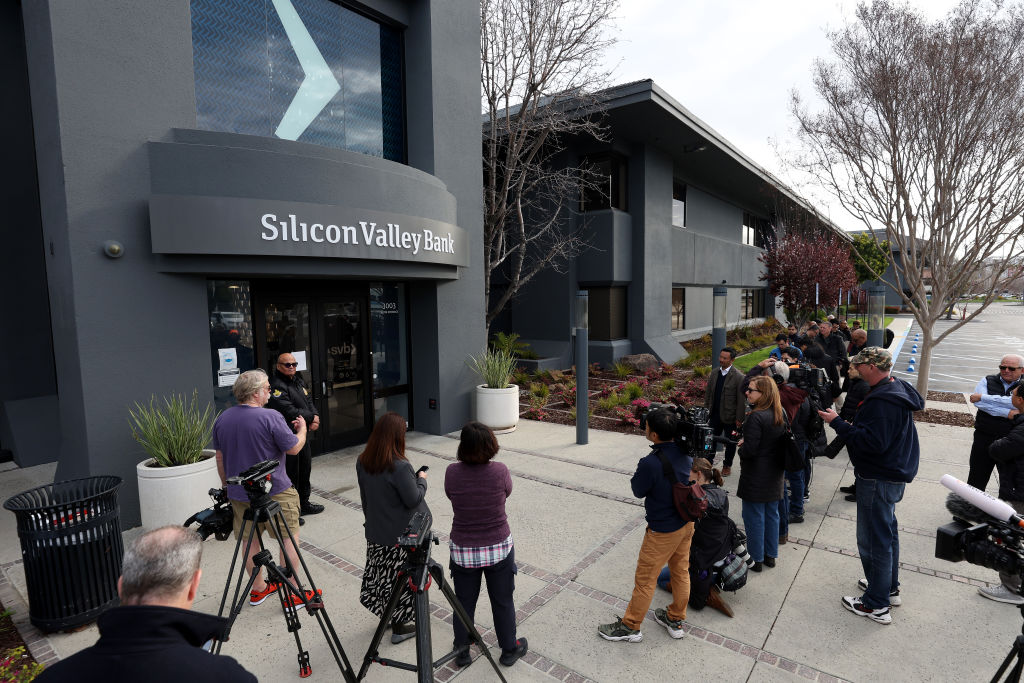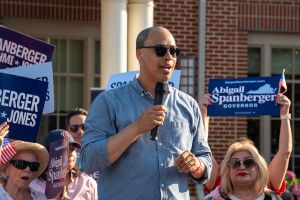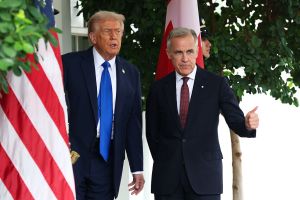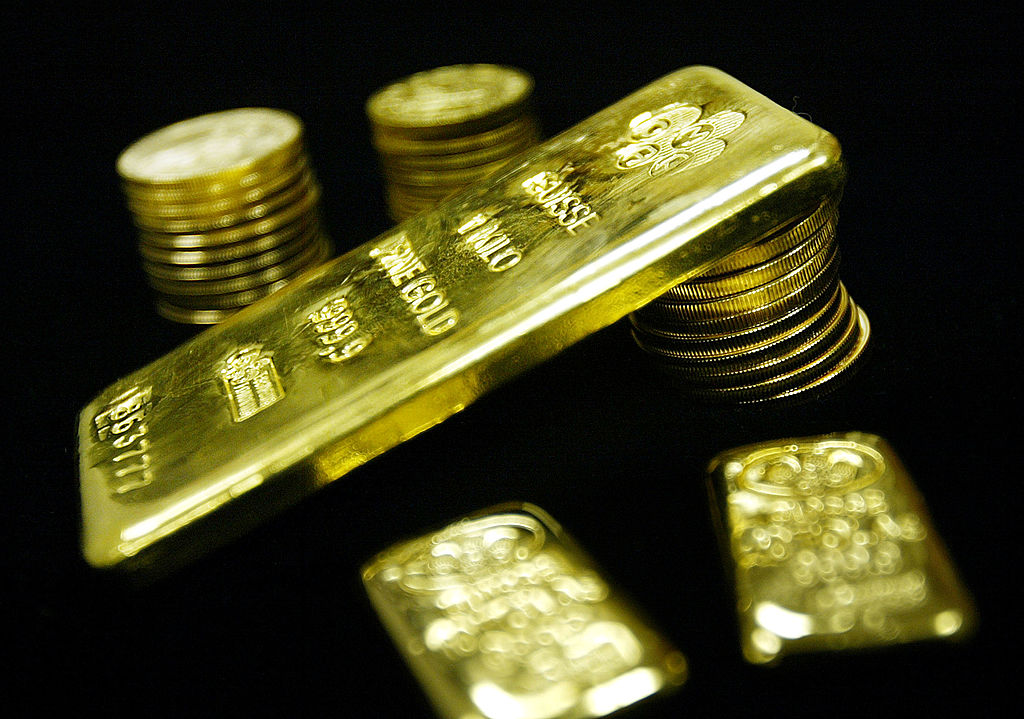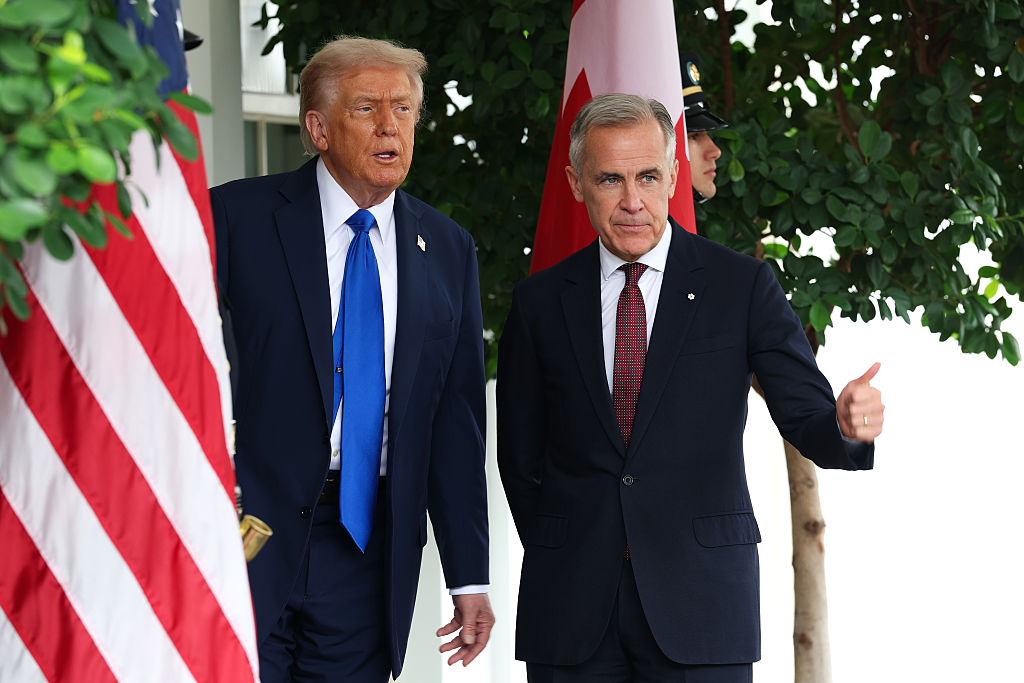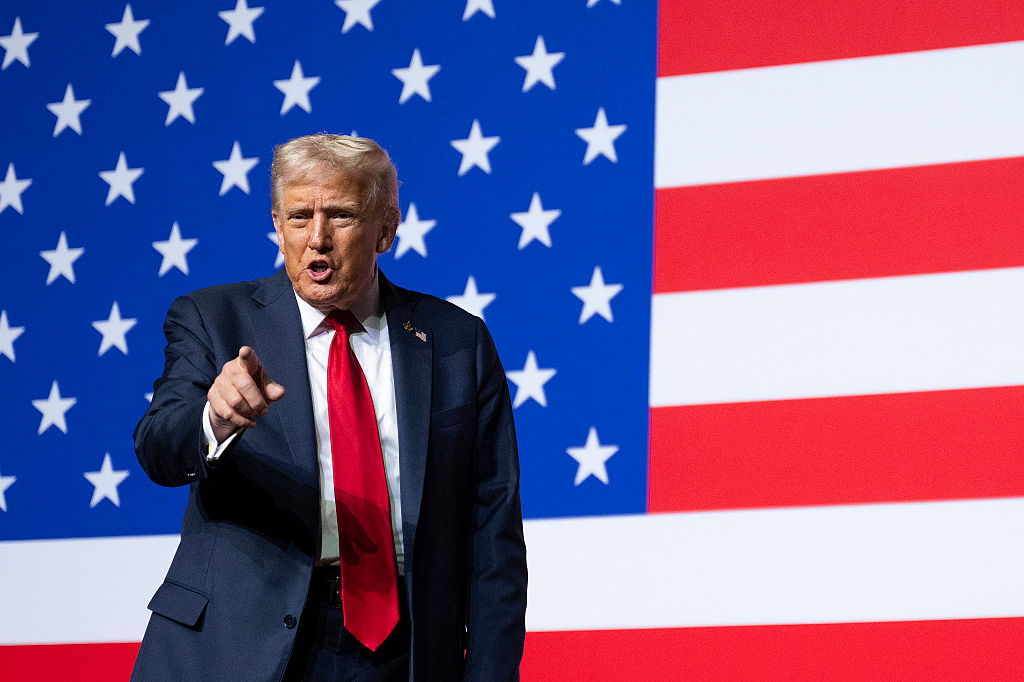SVB and the echo of bailout politics
There was a back-to-the-noughties feel to events in Washington this morning as Joe Biden sought to calm markets and assuage fears of contagion in the banking system after the collapse of Silicon Valley Bank in the last few days.
Talking the day after regulators announced emergency measures that guaranteed all depositors at Silicon Valley Bank, Biden said that “thanks to the quick action of my administration over the past five days, Americans can have confidence that the banking system is safe.”
Viewed as a stand-alone case, Biden’s response to a run on America’s sixteenth largest bank after mismanagement left it fatally exposed to higher interest rates is understandable. The administration maintains that taxpayers will not have to pick up the bill and the White House will be hoping that this federal intervention will be enough to contain the problem.
Supporters of the move argue that the government intervention is not a bailout because, unlike in 2008, the government has not used taxpayers’ money to save stockholders and bondholders. Instead it has created an insurance fund for depositors that will be capitalized by the banks.
Those are, to be sure, very important differences. But how much will they matter politically? Much depends on whether the administration is forced into further action in the coming days. For now, the White House will be acutely aware of the perception that the government is intervening to help venture capitalists and tech start-ups. An administration eager to tout its blue-collar credentials knows this isn’t a good look. And even given the differences between past bailouts and this emergency measure, the echoes of bailout politics will ring loudly in Biden’s ear.
On the one hand, it’s possible to understand the nature of yesterday’s intervention as an effort to avoid the mistakes of 2008: saving depositors, not stockholders. On the other, it’s clear that some of the same considerations weigh heavily today even with that difference. Allowing SVB to fail does not fully address all the concerns about moral hazard or the idea of privatized gains and socialized losses. After all, SVB’s customers benefitted from the bank’s risky practices in the form of cheap debt. The cost of guaranteeing SVB deposits is likely to be borne indirectly by consumers if the “special assessment” the administration plans to impose on banks is passed on to the consumer.
And even if the administration can stop with yesterday’s intervention, the result of that alone is dramatic enough: a banking system in which all deposits, insured or uninsured, are now de facto underwritten by the government. That is a dramatic expansion of the logic of “too big to fail” that poses big, difficult questions about the banking system.
2008 feels like a long time ago, and Washington has changed in the intervening decade and a half. But the reaction to SVB’s collapse and the debate about what should be done will be an interesting moment to take stock of how much has changed, and how much has stayed the same.
On our radar
Biden’s early start
How do you know that the SVB collapse is a big deal? According to Jen Psaki, because Joe Biden gave a speech about it at 9 a.m. “Joe Biden does nothing at 9 a.m.,” said the White House spokesperson-turned-talking-head on MSNBC this morning. “The fact that he is doing this at 9 a.m…. speaks to how vital the White House recognizes it is to have his voice out there.”
He’s… throwing?
Ron DeSantis is getting creative when it comes to finding ways of saying he’s running for president without saying he’s running for president. The latest trick: to do so while tossing a baseball back and forth with Fox’s Brian Kilmeade. “When can we expect the big announcement?” asked Kilmeade. “Depends how we do in this legislative session,” replied DeSantis with a laugh.
*** Sign up to receive the DC Diary in your inbox here ***
Pence takes his biggest swipe at Trump yet
Former vice president Mike Pence took a giant step closer to confirming his 2024 presidential bid by distancing himself from Donald Trump with his most decided statements to date.
Speaking over the weekend at the annual Gridiron Dinner on the topic of January 6, Pence said, “Make no mistake about it: What happened that day was a disgrace, and it mocks decency to portray it in any other way. President Trump was wrong. I had no right to overturn the election. His reckless words endangered my family and everyone at the Capitol that day, and I know history will hold Donald Trump accountable.”
A CNN opinion piece labels Pence a hypocrite over his words, as Pence said at the dinner, “The American people have a right to know what took place at the Capitol on January 6.” Yet, as CNN notes, the former vice president “declined to testify before the House committee investigating” J6 and “recently filed a motion to block a federal grand jury subpoena seeking his testimony.”
Politico offers Pence the benefit of a pragmatic approach: “The former VP has been simmering about Jan. 6 for some time. But he wanted to take advantage of his speech before a room full of top political journalists.”
A few weeks ago, when pressed over whether he thought the GOP should nominate Trump as their 2024 candidate, Pence said, “I think we’re going to have better choices.” Is Pence himself one of those better choices? He joked to the Gridiron audience, “I will wholeheartedly, unreservedly support the Republican nominee for president in 2024. If it’s me.”
–Teresa Mull
‘Landing the plane’ is not Fox News’s job
In a piece for The Spectator, Steve Krakauer mounts a defense of Fox News’s conduct in the days and weeks after the 2020 election. Krakauer complains of “bad faith, knee-jerk, nuance-free coverage” and argues that the network’s biggest names’ flirtation with Trump’s stolen election nonsense was an attempt to “land the plane.”
“Trust with the viewers is paramount, and in that time, it wasn’t just about getting the plane on the ground, because if it lost a wing and crashed, it would be disastrous for all involved,” writes Krakauer. “It had to be strategic — finessed. Trump and those around him were the turbulence. Some viewers had their little white bag in hand. It was rough for a bit, for sure. But ultimately, Fox News got the plane on the ground in relatively solid shape. It got to the truth — that the election wasn’t stolen, or rigged, or hacked. And it regained the trust of its viewers.”
In other words, Fox had to lead its mistrustful viewers, carefully and gently, to the realization that Trump lost. It’s a compelling defense of the otherwise indefensible, but I wonder if Steve isn’t overthinking things. Ultimately, I’m uneasy with the idea that a journalist’s job is to do anything but tell the truth: to explain and interpret events for their readers, viewers or listeners with honesty and clarity. It’s not Fox’s job to “land the plane,” just as it isn’t MSNBC’s job to dismantle structural racism or the Washington Post’s job to prioritize “moral clarity.” Everything else is noise.
From the site
Michael Gibson: Make the colleges pay
Jonathan Bydlak: The budget fight and the new politics of entitlements
Tanya Gold: Michael Caine at ninety, in his own words
Poll watch
President Biden job approval
Approve 44.3 percent | Disapprove 51.4 percent | Net Approval -7.1
(RCP Average)
2024 Pennsylvania presidential Republican primary
Trump 49% | DeSantis 31% | Haley 5% | Pence 5% | Trump +18
(PPP)
Best of the rest
Joseph Zeballos-Roig, Semafor: Build Back Better’s second life as President Biden’s deficit pitch
Jerry Hendrix, the Atlantic: The age of American naval dominance is over
Huw Van Steenis, Financial Times: History can instruct us on the fallout from SVB’s collapse
Luke Thompson, City-Journal: The problem of Gavin Newsom
Ben Foldy, Rachel Louise Epstein and Justin Baer, Wall Street Journal: How Silicon Valley turned on Silicon Valley Bank
Thomas Lenard, the Dispatch: The public deserves answers on our Covid response



